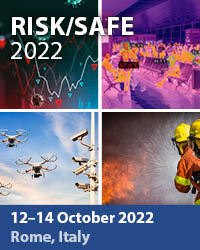ISPESL Radon Programme: A Challenge In The Academic Programme Of A Safety And Security Engineering Course
Price
Free (open access)
Transaction
Volume
82
Pages
8
Published
2005
Size
241 kb
Paper DOI
10.2495/SAFE050151
Copyright
WIT Press
Author(s)
A. Moccaldi, R. Trevisi & C. Orlando
Abstract
The ISPESL (Italian National Institute of Occupational Safety and Prevention) is a technical and scientific body of the Italian National Health Service with the mission of guaranteeing the health and safety of workers. In 2000, the degree course of Safety and Security of Engineering was set up by the Engineering Faculty at the University of Rome, \“La Sapienza”. A particular effort has been made to introduce natural radioactivity topics, including radon risk, as a part of the University Educational Programme of \“Protection from Ionising and non-Ionising Radiation” discipline. This article describes this experience and the related challenges, in particular the ones connected to the training of engineers as Qualified Experts in radiation protection. The ISPESL recognises that this is an important opportunity to deliver adequate training on radon and natural radioactivity management. The authors hope that other Universities, which intend to set up the same degree course, will include this discipline in their Educational Programme. Keywords: radon, education network, knowledge management. 1 Introduction All living organisms are continually exposed to ionising radiation, which has always existed naturally. A significant contribution to world population exposure to natural sources of radiation is due to radon gas, which emanates from the soil and may concentrate in indoor environment. In particular since 1977 the United Nations Scientific Committee on the Effects of Atomic Radiation (UNSCEAR) has estimated that the worldwide average annual effective dose due to natural
Keywords
radon, education network, knowledge management.




